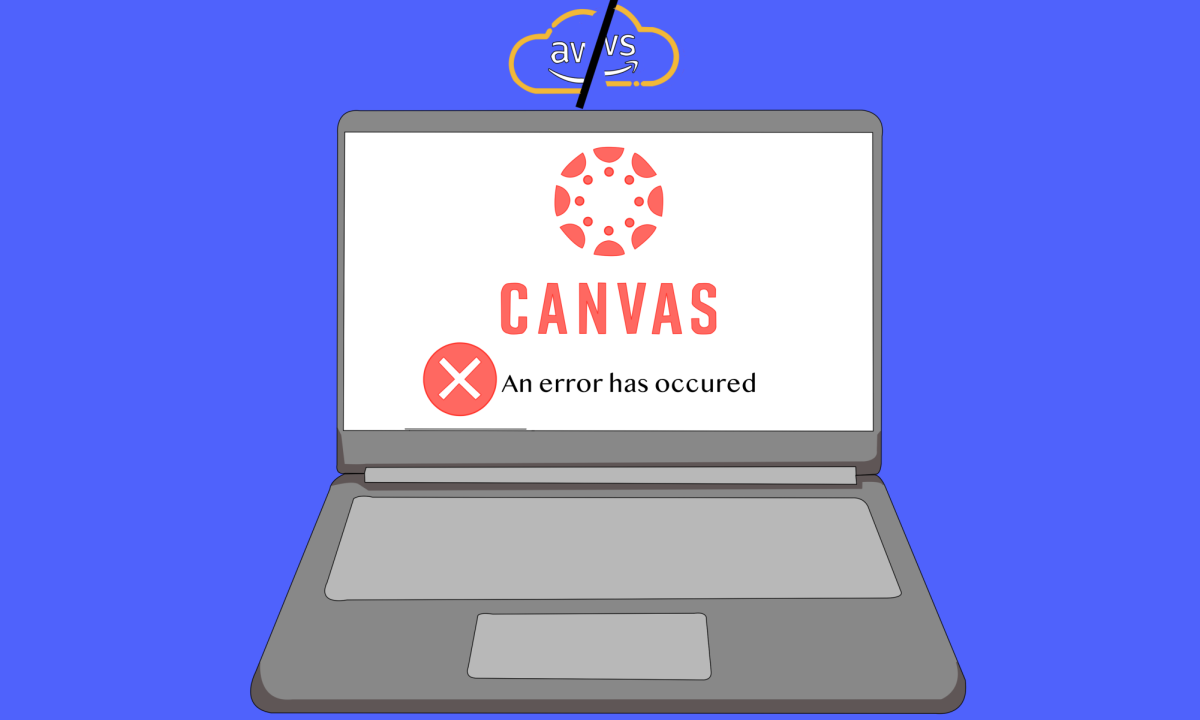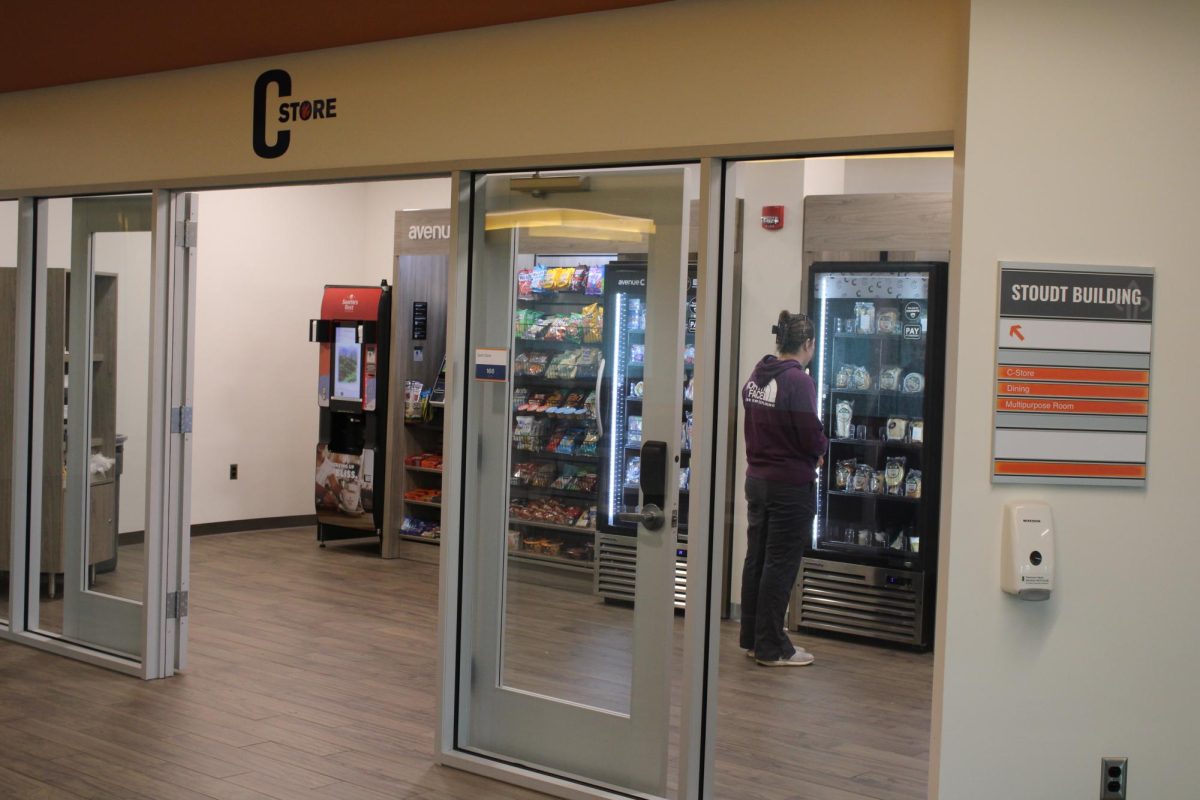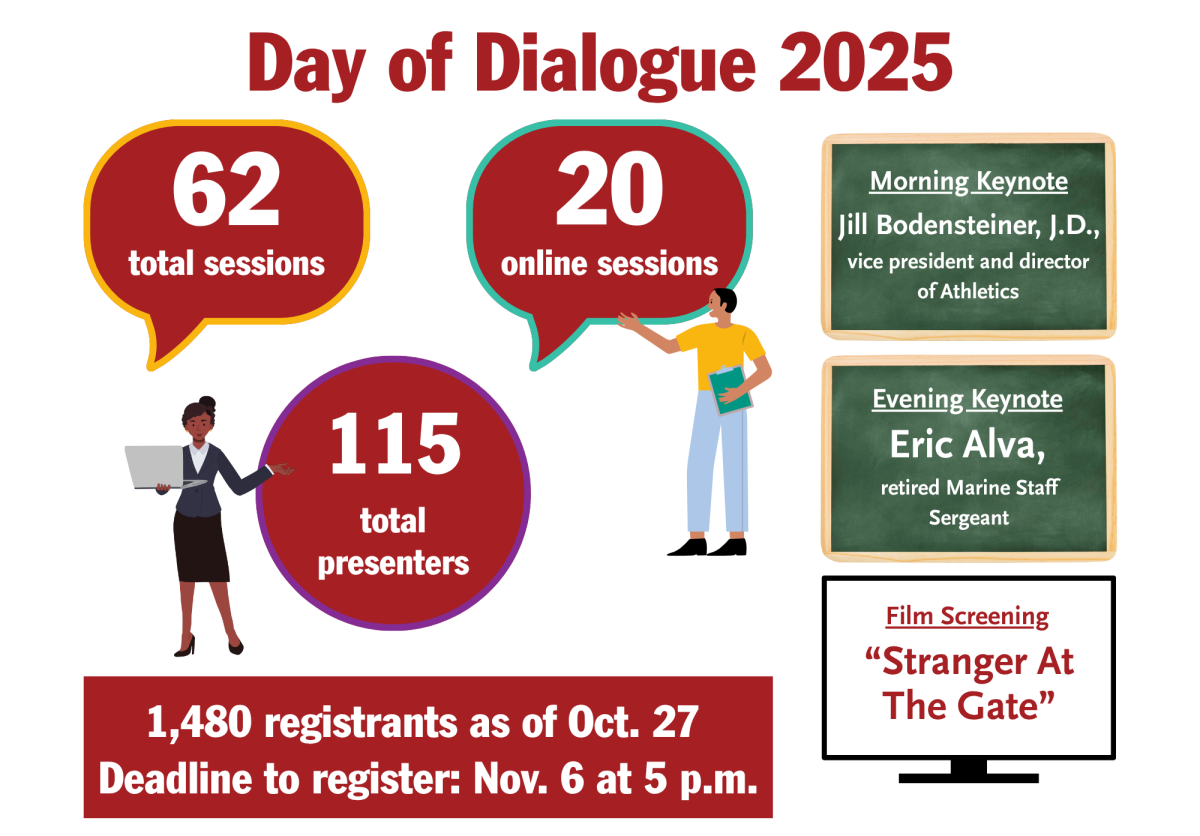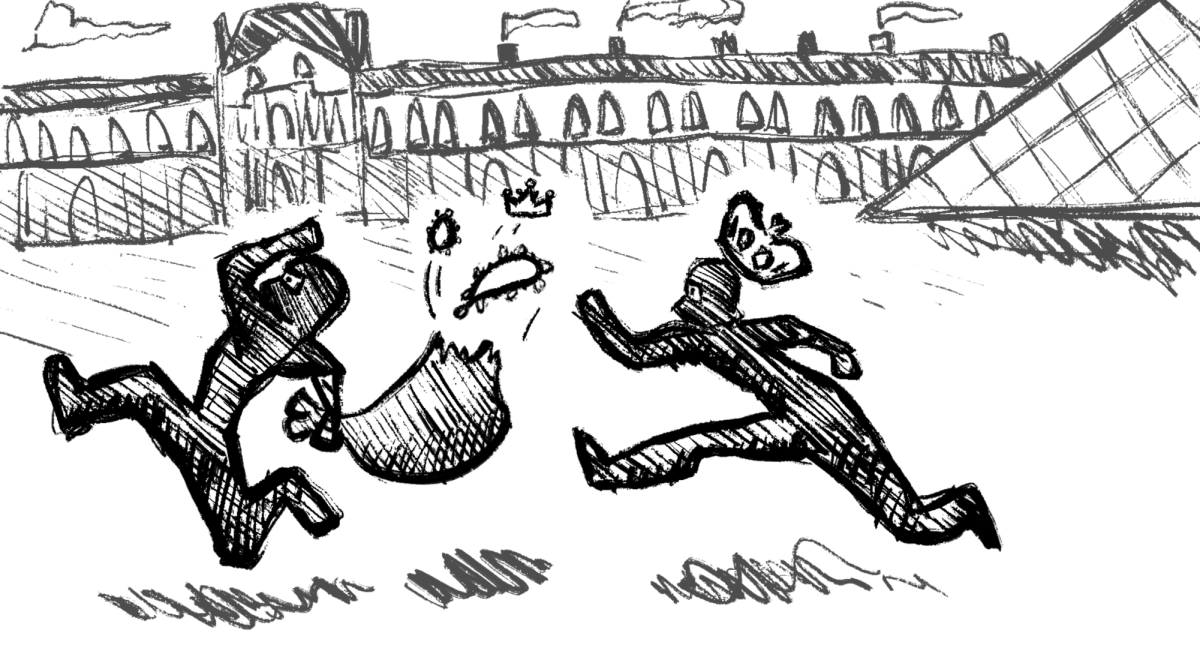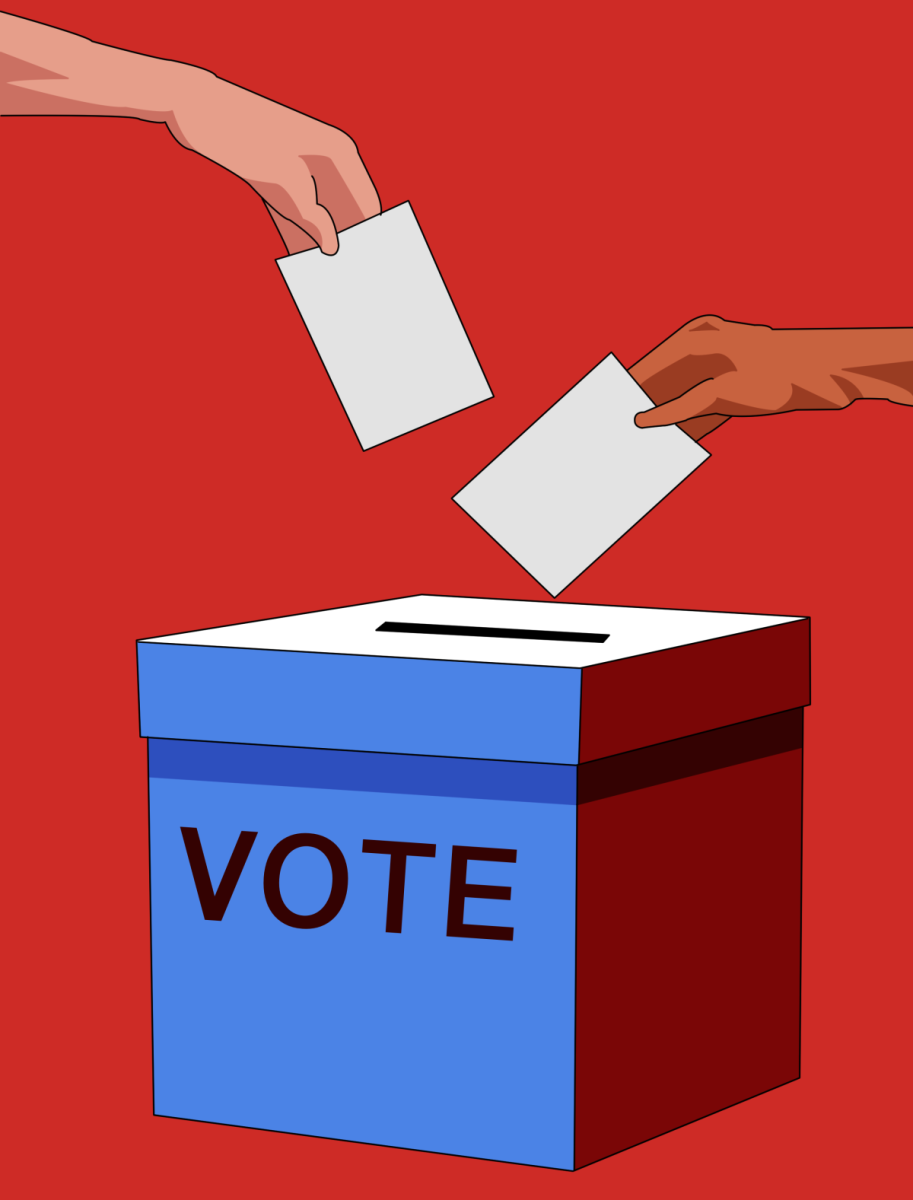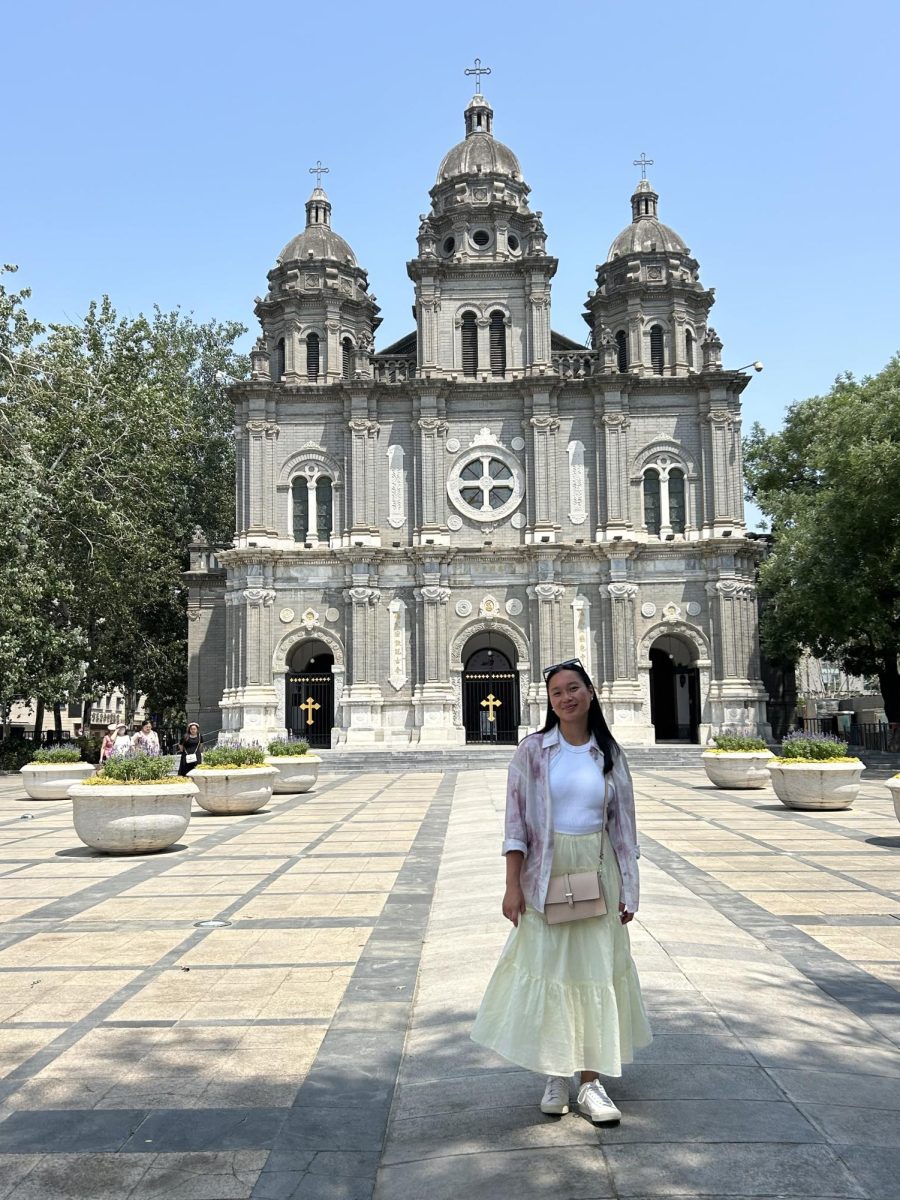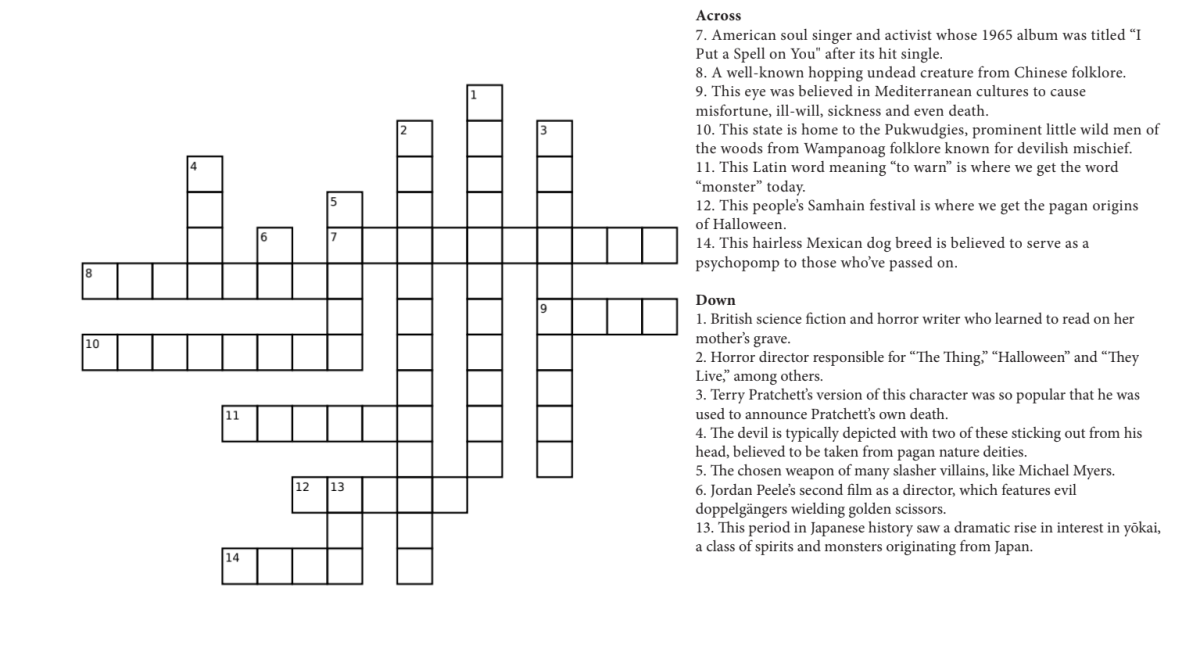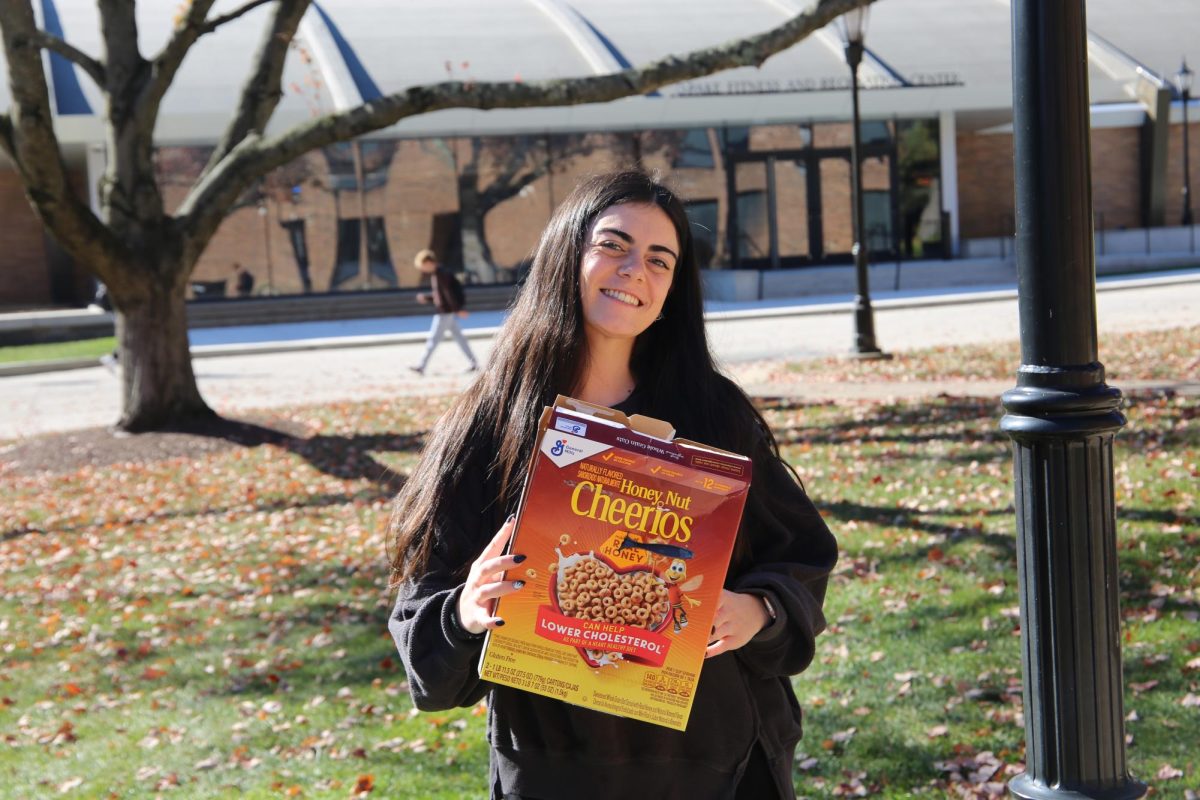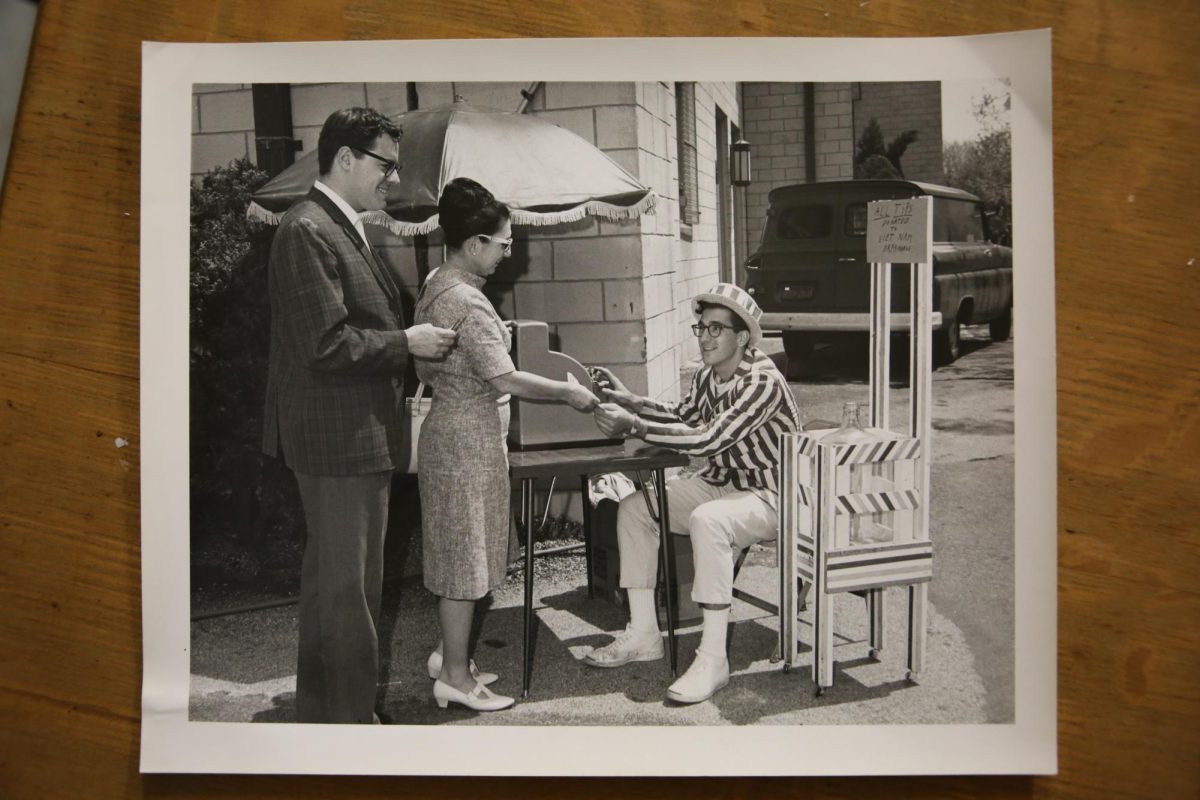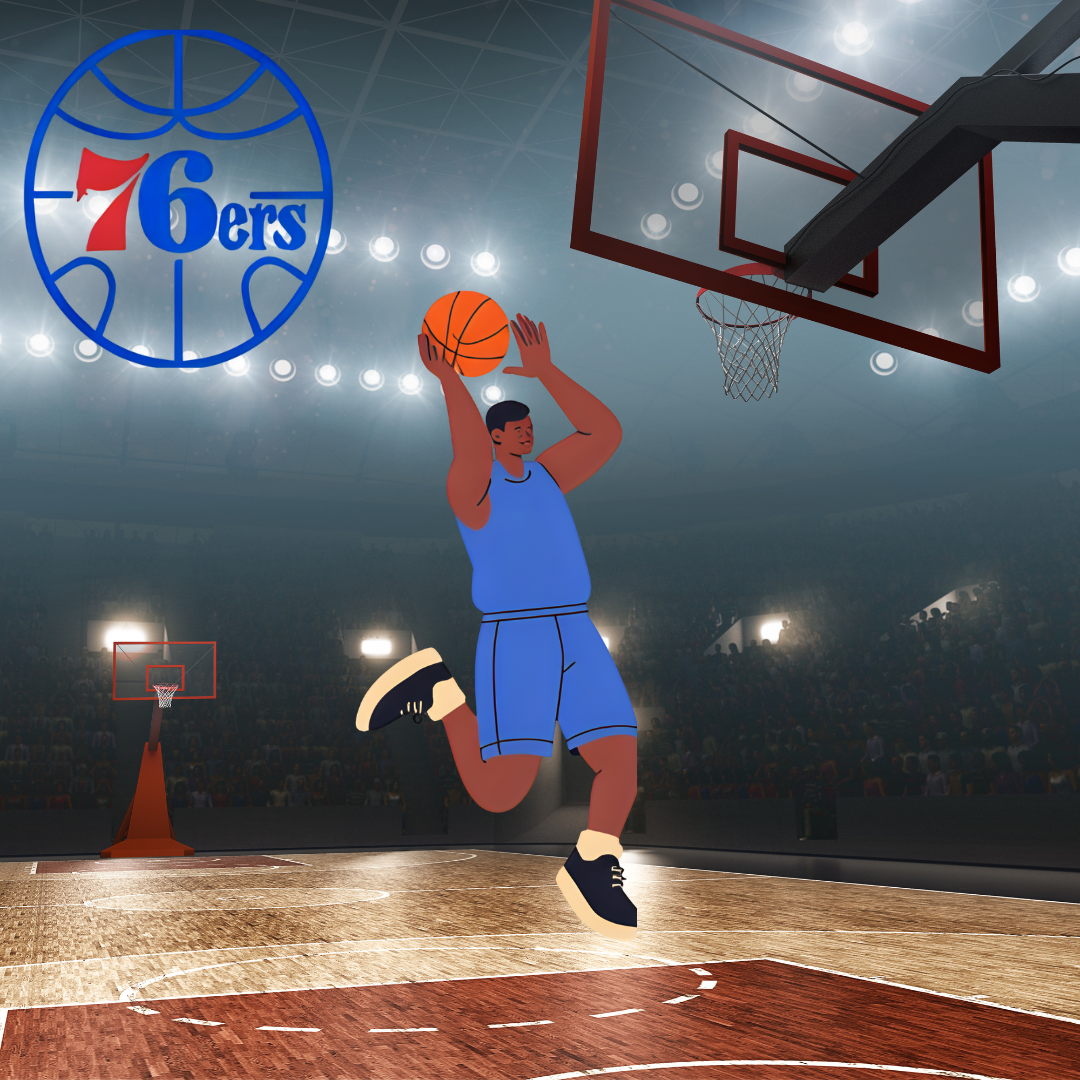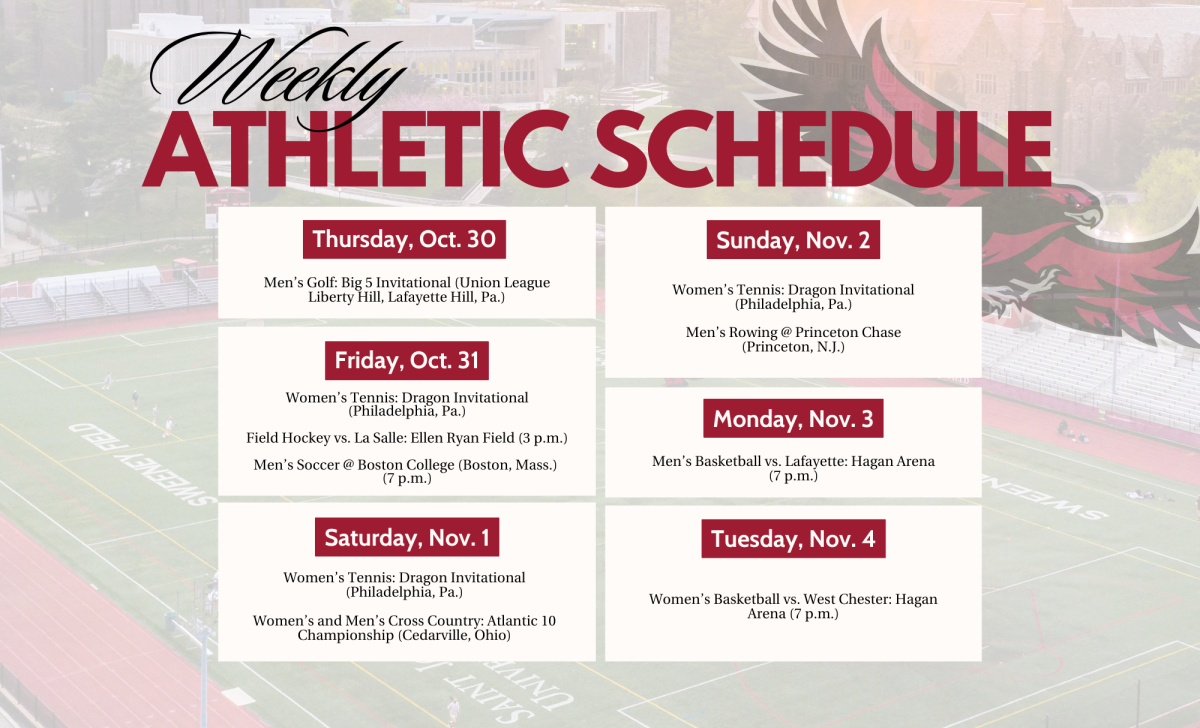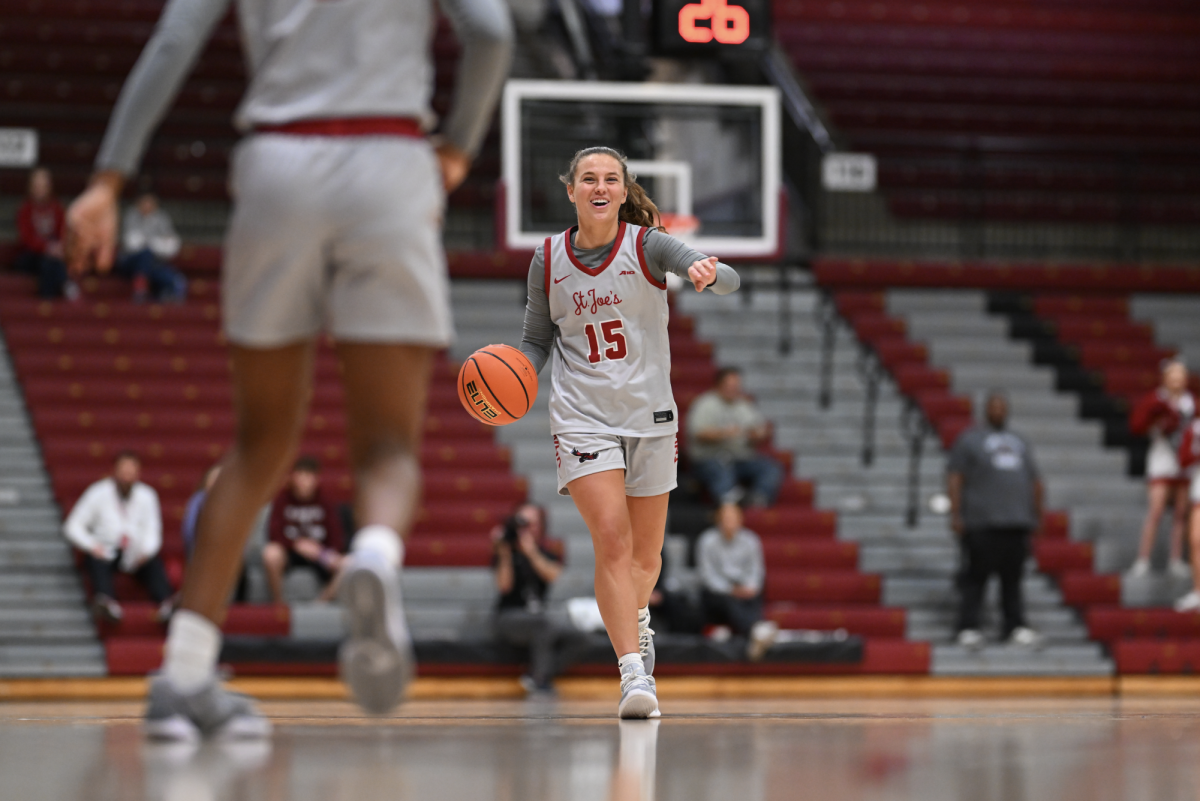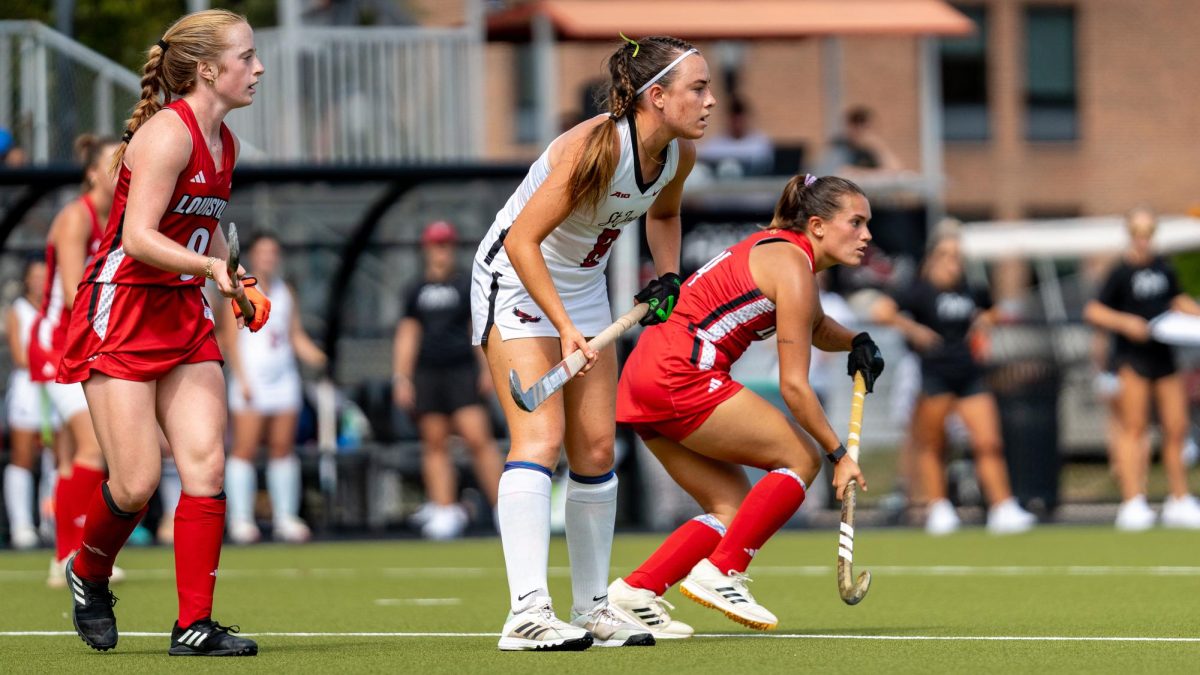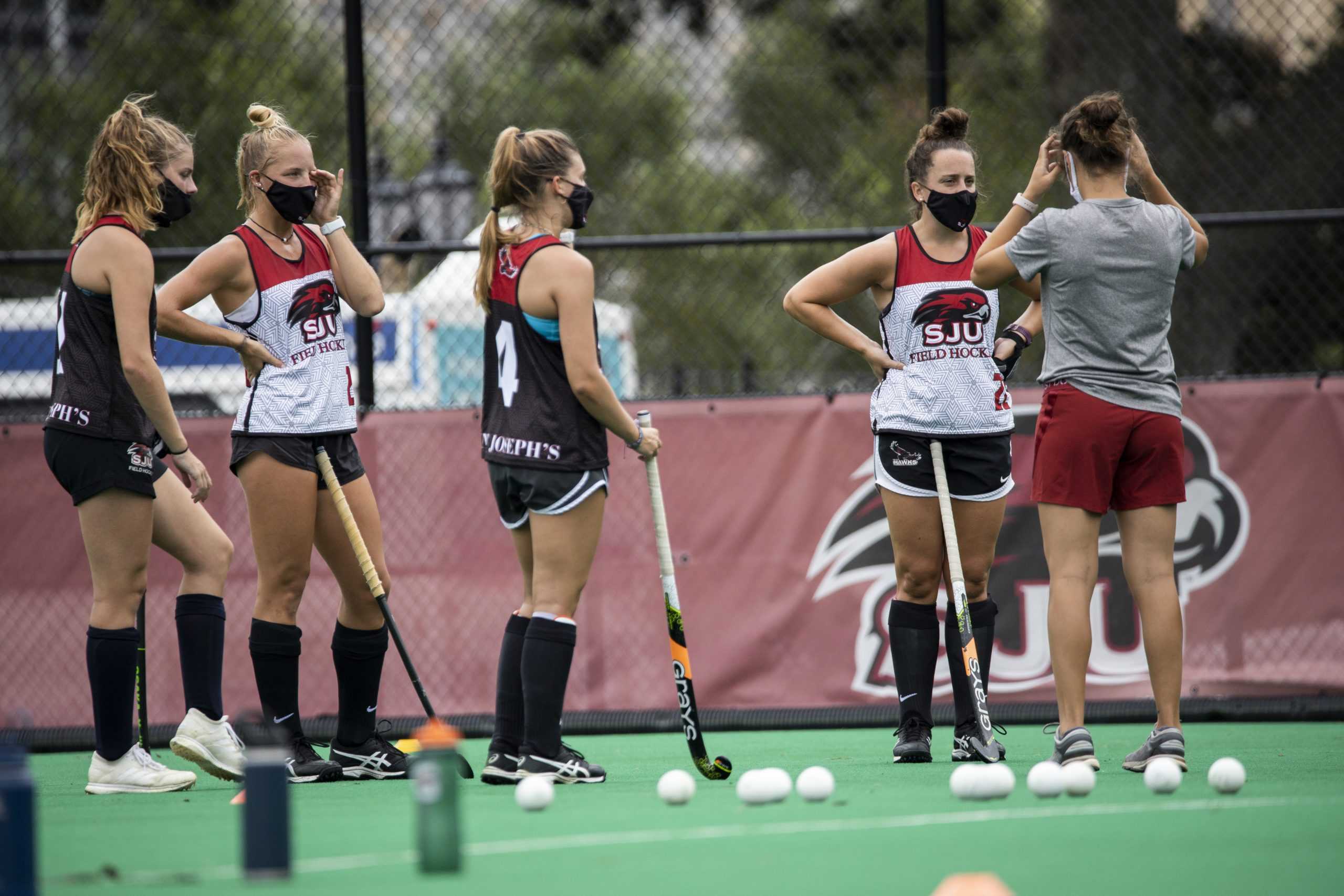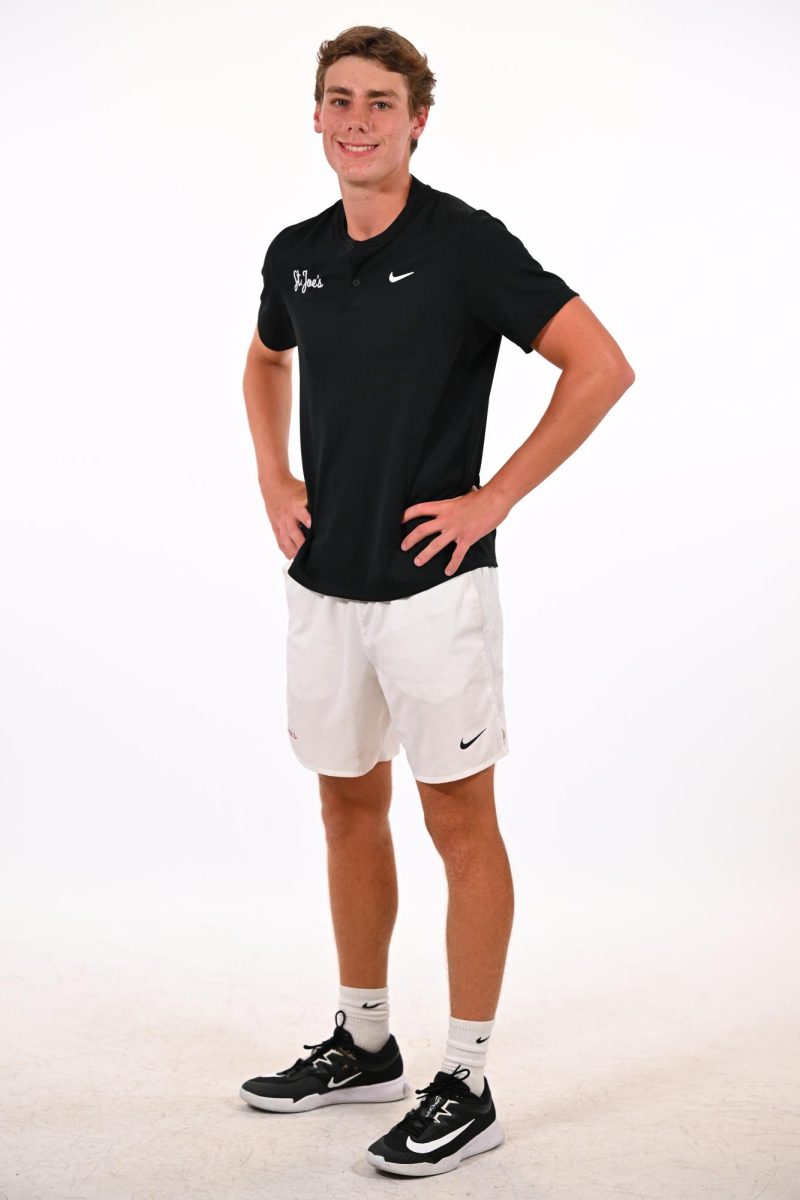With the cancelation of fall sports by the Atlantic 10 (A-10) due to the coronavirus pandemic, the St. Joe’s field hockey team is unable to pursue a fourth consecutive A-10 Championship title and fifth consecutive A-10 Championship appearance.
St. Joe’s sports teams are required to follow new guidelines to prevent the spread of COVID-19, even though they aren’t actively competing, and the field hockey team is no exception.
For the players, these new guidelines and restrictions might not be the easiest to adjust to, but the team has adhered to the changes, and is thankful for the opportunity to be back on campus, according to senior back Nicholl Fenton.
“So much is changing weekly, I feel like the restrictions are easing up every week because we’re following the rules to the best of our ability,” Fenton said. “But it’s just so exciting to have a stick in our hands again, it seems more normal than anything.”
While the guidelines may be easing up as the team continues to follow new protocols for everyday training, there is still a process each individual student-athlete must follow in order to participate in daily practices.
“The first thing we have to do is check in with our trainer to get our temperature taken and [we must] wear a mask, and then we’re only allowed a certain [amount of] people in the locker room at a time,” said senior midfielder Cassidy Atchison. “We have to wear masks for the whole training and then we’re in pods, so those are smaller groups [for training].”
Pods are small groups of student-athletes for training sessions. Their purpose is to make sure only certain student-athletes come into contact with one another during practices, as well as limit the overall number of people in a given training session.

Not only have these new guidelines affected how the team prepares for daily practices, but also the specific types of training routines that they are allowed to do.
“We’ve been doing more technical work because we can’t even play full on defense,” Atchison said. “So, we’ve been doing a lot of individual skills, not too much game play, and then we run and we lift.”
These guidelines have presented challenges in finding ways to get the players out on the field together. However, the coaching staff is helping to maintain stability in training for the student-athletes.
“We can’t really scrimmage because you can only do three-on-three’s and even then there are restrictions with how close the girls get,” said Assistant Coach Martu Loncarica. “Within our sport we’re lucky because there isn’t a lot of contact, but we’ve had to think of a lot of different exercises that you can do within the new rules to maximize training.”
Despite all these changes, Loncarica said her team is resilient and is committed to training regardless of new rules for practices.
“They have been super flexible and they don’t question things,” Loncarica said. “For instance, nobody complains about wearing masks, they just show up and do what they’re supposed to do. So we’re pretty happy with how they’ve adapted.”
Although they might not complain during practices, when asked what the most difficult adjustment has been thus far, both Atchison and Fenton had similar messages.
“Definitely wearing a mask and running around,” Fenton said. “I personally didn’t train like that over the summer, so that’s something I would have changed.”
Atchison said conditioning and playing with a mask “alters the intensity level.”
As uncertainty remains as to whether sports will be allowed at all during the 2020-21 school year, the field hockey team continues to practice with the same dedication.
“The coaches have done a great job and I think everybody’s trying to maintain a clear vision, even though what the near future will look like is uncertain,” Atchison said. “But we were in the midst of everything being changed all summer, so I think as a team we’ve adapted well to that.”

